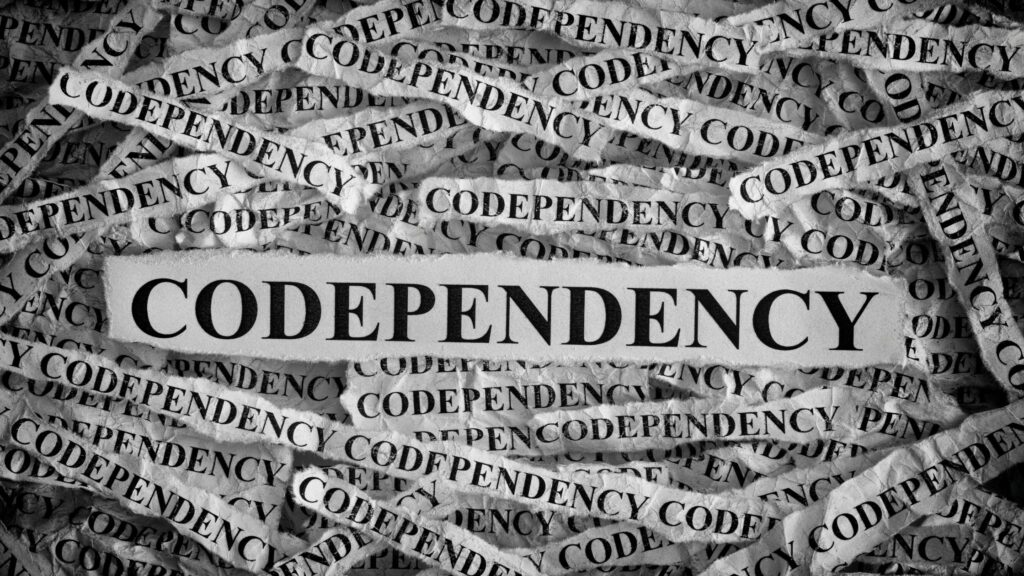If you’re struggling with codependency, you may feel like you’re stuck in a never-ending cycle of pain and chaos. It can be difficult to know how to break free and start building healthy relationships. But it is possible! In this blog post, we will discuss some steps that can help you begin the healing process and start living a happier life.
Contents
What Is Codependency Recovery?

Codependency recovery is the process of learning how to have healthy, balanced relationships. This means developing a sense of self-worth independent of others and learning how to communicate effectively.
There are many codependency recovery programs and resources available. Some people choose to work with a therapist, while others prefer self-help books or online resources. The most important thing is to find what works for you and to be patient with yourself. Recovery takes time and there is no one-size-fits-all solution.
Why Is Codependency Recovery Important?

If you’re in a codependent relationship, it’s likely that you’re not feeling very good about yourself. This is often characterized by low self-esteem, feelings of inadequacy, and an excessive need for approval from others.
However, these negative beliefs can lead to unhealthy behaviors, such as people-pleasing, avoidance of conflict, and an over-reliance on others for validation.
Codependency recovery is important because it can help you break free from the negative patterns and learn to love and respect yourself. So, when you start to feel better about yourself, you’ll be able to create healthier relationships with the people in your life. You’ll also be better equipped to deal with the challenges that come up in any relationship – codependent or not.
Codependency Recovery Stages

The four stages of codependency recovery are:
Acknowledging
The first stage of codependency recovery is acknowledging that you have a problem. This can be difficult to do because it means admitting that you’re not perfect. But it’s an important step in healing.
Identifying
The second stage of codependency recovery is identifying the root causes of your codependent behavior. This may involve looking at your childhood, your family dynamics, and any past traumas. It’s important to understand why you behave the way you do in relationships.
Changing
The third stage of codependency recovery is changing the behaviors that are causing problems in your relationships. This may mean learning how to communicate better, setting boundaries, or learning how to take care of yourself.
Growing
The fourth and final stage of codependency recovery is growing in healthy relationships. This means finding people who support and encourage your growth. It also means learning how to be emotionally intimate with others without being codependent.
If you’re struggling with codependency, know that you’re not alone. There are many people who have been through the same thing. And there is hope for recovery. The four stages of codependency recovery can help you heal and grow in healthy relationships.
Codependency Recovery Therapies

There are many different types of therapies available to help people in codependency recovery. Some of these include:
Cognitive Behavioral Therapy
This type of therapy helps people identify and change negative thinking and behaviors that contribute to codependency. In this type of therapy, people learn skills to manage their thoughts and emotions in a more positive way.
Interpersonal Therapy
This type of therapy focuses on improving communication and relationships with others. It can help people in codependency recovery learn how to set boundaries, express their needs, and resolve conflict in a healthy way.
Individual Therapy
This type of therapy can help people work through personal issues that may be contributing to their codependency. You’ll work with a therapist one-on-one to address these issues.
Group Therapy
In group therapy, people share their experiences with others who are going through similar issues. This type of therapy can provide support and encouragement, as well as practical advice for dealing with codependency.
And, each person will respond differently to various types of therapies, so it is important to find what works best for you. Codependency recovery is possible with the right help and support. If you or someone you know is struggling with codependency, please reach out for help.
Tips For Codependency Recovery

If you are ready to start your codependency recovery journey, here are some tips to get you started:
- Educate Yourself About Codependency: This can help you understand your own behaviors and triggers. It can also help you develop more empathy for yourself and others.
- Set Boundaries In Your Relationships: This means learning to say “no” when you need to and setting limits on what you are willing to do for others. It also means taking care of yourself first.
- Work On Your Self-Esteem: This includes learning to love and accept yourself, as well as developing healthy coping skills to deal with life’s stressors.
- Seek Professional Help: If you feel like you can’t do this on your own, seek out a therapist or counselor who can help you work through these issues.
- Take Small Steps: Recovery is a process, so take it one day at a time. And be gentle with yourself along the way.
- Practice Self-Care: This means taking care of yourself emotionally and physically. This includes things like eating healthy, getting regular exercise, and spending time doing things you enjoy.
- Build A Support System: This can include friends, family, a therapist, or a support group. So, these people can offer you emotional support and guidance as you heal.
- Create Healthy Coping Skills: This means finding new ways to deal with stressors in your life. This could involve things like journaling, meditation, or deep breathing exercises.
- Recognize Your Triggers: These are the things that cause you to slip back into unhealthy codependent behaviors. Once you identify your triggers, you can start to work on avoiding them or handling them in a healthier way.
These are just a few tips to get you started on your codependency recovery journey. Remember, change is possible if you’re willing to put in the work.
Conclusion
In conclusion, codependency recovery is possible. It requires work, but it is worth it to be able to have healthy relationships. With the right tools and support, you can learn how to love yourself and others in a healthy way.
However, if you are struggling with codependency, know that you are not alone. There is help available. Seek out a therapist or counselor who can help you on your journey of recovery. And, there are also many helpful books and websites about codependency recovery. Start your journey today and find the hope and healing you deserve.
A Word From Therapy Mantra
Your mental health — Your psychological, emotional, and social well-being — has an impact on every aspect of your life. Positive mental health essentially allows you to effectively deal with life’s everyday challenges.
At TherapyMantra, we have a team of therapists who provide affordable online therapy to assist you with issues such as depression, anxiety, stress, workplace Issues, addiction, relationship, OCD, LGBTQ, and PTSD. You can book a free therapy or download our free Android or iOS app.


